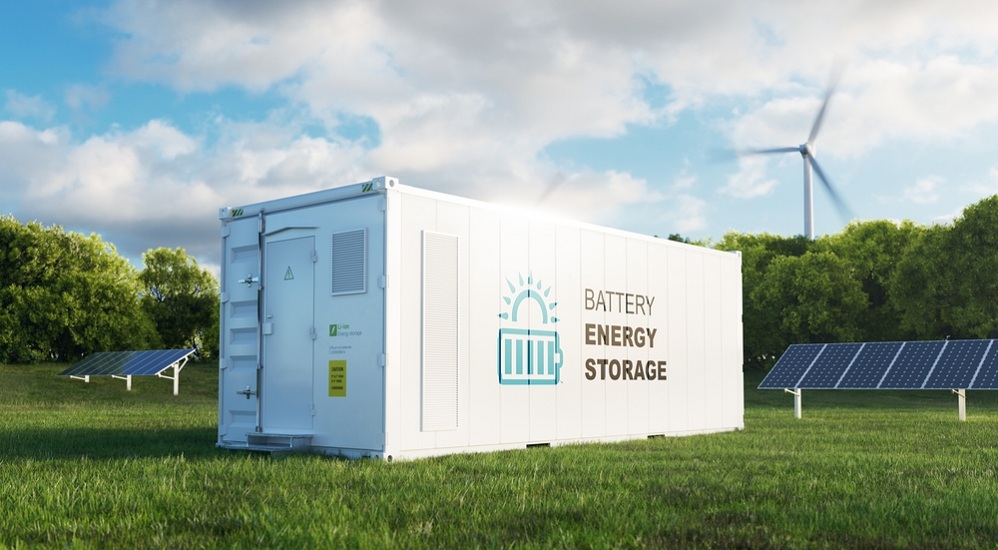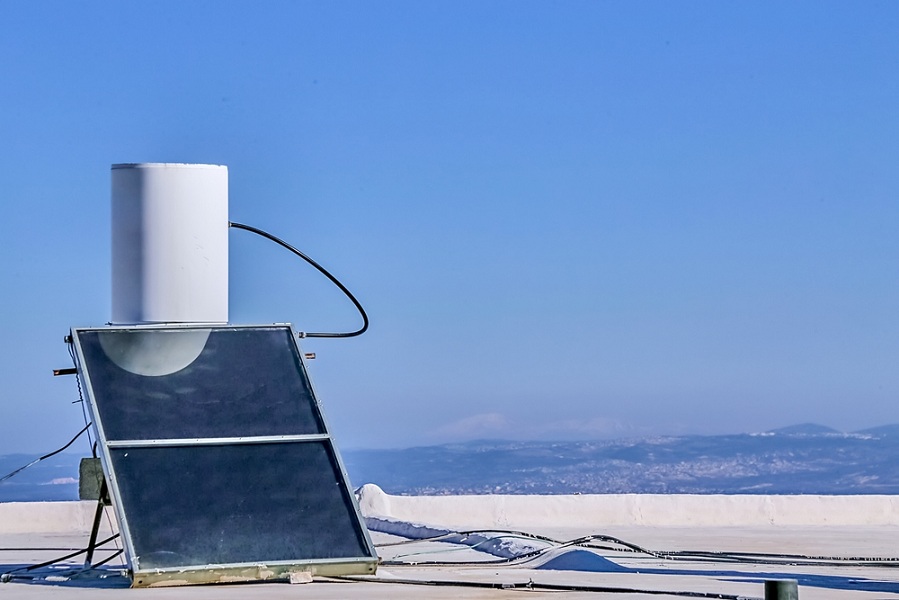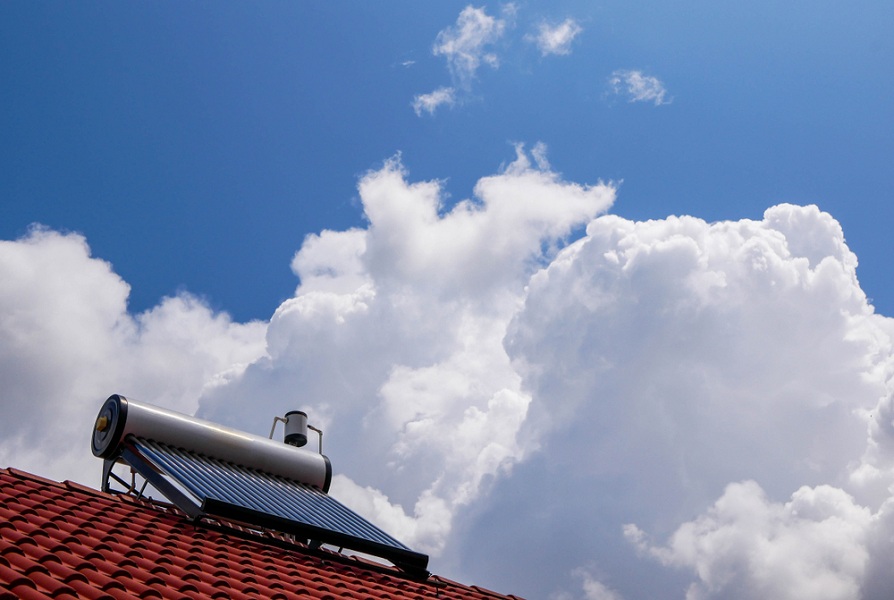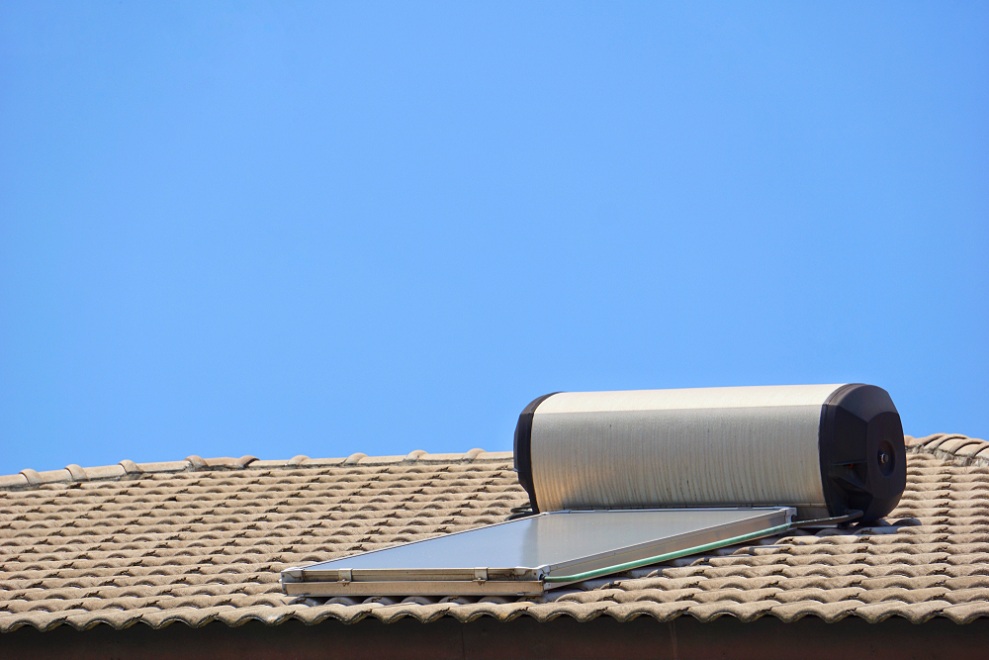Space heaters gobble up a lot of power. The average residential space heater is rated at 1500W.
You not only need a solar generator that can handle this power consumption, but also one that can run the heater for a decent amount of time.
So it’s important to consider both the power rating and battery size of a solar generator to determine if it can power a space heater.
Can a Solar Generator Power a Space Heater?
Yes, a large/high-output solar generator can power a space heater. It can also power most household appliances.
Solar generators contain everything you need to power appliances including a battery, an inverter, and multiple outlets including AC, DC and USB.
To be clear, not all solar generators can power a space heater. You have to consider power draw and capacity, which we will discuss shortly. For example, a small portable power station cannot run a heater because it can’t handle the high power demand.
With the right specs, you can use a solar generator to run a space heater at home, in an RV, in your camper van or in an off-grid cabin.
How Big A Solar Generator Do I Need To Run A Space Heater?
When we talk about the size of a solar generator, we refer to two things: power rating and energy capacity.
Both of these specs are very important when considering whether a solar generator can power a space heater.
Power Rating

The first thing to check is the power rating of the solar generator.
The power rating is the maximum amount of watts the inverter built into the solar generator can produce continuously.
For you to power an appliance with the generator, the power rating has to match or be more than the power draw of the appliance.
Most household space heaters have a draw of 1500 watts. That means, at the minimum, you need a 1500 watt solar generator.
But it’s always a good idea to have a safety buffer in case of a power surge or fluctuations. Pick a solar generator that’s bigger (in terms of power output) than the heater.
For a 1500W heater, a minimum 2000W solar generator is ideal.
What if you plug the heater into a solar generator with an output of less than 1500W?
Likely nothing bad will happen; the solar generator just won’t work. The heater will trip the inverter and safety mechanisms will prevent the solar generator from producing any power.
Not all space heaters are rated at 1500W. There are smaller 500W, 750W or 1000W heaters. These can run off a smaller solar generator.
You can also run a 1500W heater off a smaller 1000W solar generator if you only use the lower heat setting that consumes 750W in most heaters.
Note: The inverter power rating doesn't apply if you plan to get a DC powered heater. For this, check the maximum amps and watts the DC outlet on your solar generator can handle and compare it against the specs of the heater.
Battery Capacity

The other way we size solar generators is by their battery capacity, which is usually given in Watt-hours or Wh.
The capacity of a solar generator tells you how long it can power an appliance. A 1000Wh solar generator can - on paper - produce 1000 watts of power for an hour.
If you plug in an appliance that draws 500W, battery life will be 2 hours. If the appliance draws 2000W, battery life will be 30 minutes (1000Wh/2000W).
Space heaters burn through battery life quickly because of their high power draw. While a 1000Wh power station with a power rating of 2000W can run a 1500W heater, it’ll do so for just a few minutes before the battery dies.
That’s why it’s important to check a solar generator’s capacity in addition to its power output.
Consider how long you’ll be using the heater each day. Then get a solar generator with more than enough capacity to provide the required runtime.
Let’s say you turn on your 1500W heater for a couple of hours in the evening. The total consumption will be 3000Wh.
You need a minimum 3KWh solar generator. But because solar generators don't provide 100% of their stored capacity, add a 20% margin. This accounts for the standard 80% depth of discharge in lithium solar generators.
Adding 20% to 3000Wh gives you 3600Wh or 3.6kWh. That’s the solar generator size you need to run a 1500W space heater for two hours each day.
If you also want to run other appliances and charge your devices with the solar generator, you need even more capacity.
Calculate your total power consumption each day and get a solar generator that can store more than that amount of power.
Here’s a table to help you pick the right solar generator power rating and capacity to run a space heater for 2 or 4 hours.
Space Heater Wattage | Min solar Generator output | Min solar generator capacity for 2hrs runtime | Min solar generator capacity for 4hrs runtime |
500W | 750W | 1200Wh | 2400Wh |
750W | 1000W | 1800Wh | 3600W |
1000W | 1500W | 2400W | 4800W |
1500W | 2000W | 3600W | 7200W |
Here are the solar generators I recommend for each scenario in the table.
Note that these numbers assume you are using the solar generator mostly for running your space heater.
If you need to do more with the solar generator like power a fridge, watch TV or recharge your gadgets, you’ll need additional capacity and power output.
How to Safely Power A Space Heater With A Solar Generator

The most important thing when running a space heater with a solar generator is following the wattage recommendations.
Do not plug a space heater into a solar generator that has a lower output than the wattage of the heater.
In fact, even powering a space heater with a matching wattage solar generator is a bad idea because heaters sometimes exceed the stated power draw.
Leave a big margin between the wattage of the heater and the continuous output of the solar generator.
For a 1500W heater, a 2000W generator is ideal. For a 750W heater, a 1000W solar generator is safe.
While solar generators have safety mechanisms to prevent an appliance from drawing more power than the inverter and battery can handle, don't risk it.
The other thing to keep in mind is temperature.
Batteries don't like to get hot - it affects their lifespan and excess heat can be a safety hazard.
Keep the heater as far away from the solar generator as the power cord will allow, and make sure the vents are facing away from the solar generator.
Can You Run A Space Heater and Other Appliances At The Same Time?
It depends on the wattage of the space heater and the continuous power output of the solar generator.
With solar generators, you can plug in multiple appliances simultaneously as long as the total load does not exceed the inverter output.
If you have a 2000W solar generator powering a 1500W heater, you only have 500W left to use before you trip the inverter.
You can probably plug in a max 300W appliance such as a mini-fridge, a TV, or a CPAP machine.
If you have a 3000W solar generator, it can handle a 1500W space heater plus a couple other appliances.
Before you buy a solar generator, figure out the combined power draw of all the appliances you plan to plug in at the same time (add up their wattages).
Then get a solar generated with a power output higher than the combined load. You should also get a higher capacity solar generator to ensure you don't drain the battery too quickly.
Bottom Line

A solar generator can power a space heater but only if it has more power output than the wattage of the heater.
To ensure you can use the heater for a decent amount of time, the capacity of the solar generator is also important.
Generally, unless you have a huge solar generator with extra battery packs, I recommend using a solar generator to power a space heater only for short periods like an hour or two.
If you need to power a space heater for long periods, consider installing a permanent solar system instead or get a gas generator.
Alternatively, get a solar generator kit with multiple battery packs. Titan, Bluetti and ShopSolarKits.com all offer high-capacity pre-configured kits with and without solar panels.
Frequently Asked Questions
Can a 500W solar generator power a space heater?
Yes, but only mini space heaters rated at 400W or less.
Can a 1000W solar generator run a space heater?
Yes, it can but only small space heaters with a wattage of 750W or less.
What size solar generator do I need to run a 1500W space heater?
An 1800-2000W solar generator is the minimum size you need to run a 1500W space heater. As for capacity, you need an 1800Wh solar generator to run a space heater for an hour and a 3600Wh solar generator to run it for 2 hours.
How long will a Jackery run a space heater?
It depends on which Jackery power station you are using. The Jackery Explorer 1000 can run a 750W heater for about an hour, the Jackery Explorer 2000 can run a 1500W heater for about 1 hour and 12 minutes and a 750W heater for about 2 hours and 24 minutes.
The Jackery 240, 150 and 300 are too small to run most space heaters.
Can I run a space heater with solar panels?
Yes, you can use solar panels to power a space heater, but not directly. The power output from solar panels fluctuates too much to reliably power electronics directly.
Also, they only work during the day.
To use solar panels to run a space heater, first connect the solar panels to a solar generator/power station then plug your heater into the solar generator.
Alternatively, connect the solar panels to a battery bank (via a solar charge controller) then connect an inverter to the batteries. You can now power a heater from the inverter.


